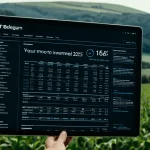Practical Advice for Leeds Landlords
Being a successful landlord in Leeds requires more than just property management; it involves understanding and navigating rental strategies and ensuring compliance with ever-changing housing regulations. As a Leeds landlord, staying informed about recent legislative changes is crucial. Housing laws are constantly evolving, and falling behind can lead to legal challenges. By keeping updated, landlords protect themselves from potential legal pitfalls and foster a fair rental environment.
Understanding both tenant rights and responsibilities is another cornerstone of effective property management. A clear acknowledgment of legal tenures can prevent misunderstandings and enhance tenant relationships, ensuring smoother lease terms for both parties. Effective communication strategies are vital in maintaining these relationships. Establishing open channels for discussing issues or changes with tenants leads to reduced conflicts and more amicable resolutions.
Also read : Your Ultimate Handbook for Choosing the Ideal New Office Location in Post-Brexit London
For those seeking to maximize their rental ventures in Leeds, leveraging local rental market insights helps. Adopting competitive pricing and enhancing properties to attract quality tenants can lead to greater tenant satisfaction and higher rental income. Embracing these strategies facilitates not just compliance but also successful and sustainable property management in Leeds.
Recent Changes in Housing Laws
To stay compliant with the evolving landscape of housing regulations in Leeds, landlords must be vigilant about recent rental law changes. Understanding these updates is crucial for ensuring smooth operations and avoiding legal pitfalls. Engaging effectively with the regulatory updates directly impacts how landlords manage their properties and relationships with tenants.
Have you seen this : Boost Your Home’s Worth: Top Flooring Choices for Busy Spaces
Overview of Key Legislative Changes
Recent Leeds law updates have introduced modifications in tenancy agreements, highlighting the importance of maintaining tenant rights as a priority. These changes require precise attention to new tenancy deposit guidelines and health and safety standards. Adapting to these laws by adjusting rental agreements accordingly is essential.
Impact of New Regulations on Landlords
The influence of new laws extends to operational costs and tenant management nuances. Landlords must adapt to be more rigorous with their documentation and proactive property management, ensuring every process aligns with the latest requirements. Compliance not only prevents legal issues but also fosters trust and better tenant relationships.
Resources for Staying Informed on Legal Updates
For landlords seeking to keep abreast of rental law changes, subscribing to local legal newsletters and joining landlord associations provides critical insights. These resources offer updated information and community discussions for a practical understanding of changes.
Best Practices for Compliance
Achieving landlord compliance in Leeds begins with understanding legal best practices essential for sustainable property management. Regular property inspections are key to catching maintenance issues early, ensuring tenant satisfaction, and satisfying legal obligations. Regular inspections can prevent costly repairs by identifying issues before they grow.
To remain compliant, landlords must maintain thorough documentation of all communication with tenants. This practice not only serves as evidence in legal disputes but also nurtures effective tenant relations. Documentation should encompass emails, letters, and even phone call summaries to ensure all interactions are recorded.
Implementing fair rental agreements is fundamental in upholding rental law adherence. Contracts should clearly define tenant rights and responsibilities, providing a transparent framework that aligns with current housing regulations. A well-structured agreement minimizes misunderstandings and enhances mutually beneficial arrangements.
Additionally, maintaining a proactive approach towards understanding and adjusting to legislative changes will reinforce compliance. Staying informed through local authorities and landlord associations can provide further guidance on maintaining legal standards. Prioritizing compliance ultimately fosters a stable rental environment, building trust with tenants and safeguarding the landlord’s interests.
Strategies for Maximizing Rental Income
To effectively enhance rental income strategies in the Leeds rental market, landlords must fine-tune their approach to property management tips. Regularly assessing and adjusting rental prices in line with market trends can significantly impact profitability. This involves keeping an eye on local market fluctuations and setting competitive rates that reflect the property’s value.
Employing effective marketing techniques boosts visibility among potential tenants. Highlighting unique property features, such as proximity to amenities or energy-efficient installations, can attract the right tenants. Deploying online advertisements, social media campaigns, and engaging visuals ensures a wide reach.
Investing in property enhancements also entices quality tenants willing to pay premium prices. Consider upgrades that add tangible value, such as modern kitchens or improved security systems. Regular maintenance, like fresh paint and updated décor, keeps properties appealing and can justify higher rental charges.
By integrating these approaches, landlords can optimise their rental income while also creating a more appealing living environment for tenants. Maintaining an attractive, well-priced property not only secures timely tenant requisition but also minimises vacancies, ultimately enhancing financial outcomes.
Challenges Faced by Landlords in Leeds
Leeds landlords encounter various challenges, often centred around tenant issues and navigating the rental market difficulties. Common disputes with tenants, such as differing expectations on property maintenance and rent payments, require careful resolution to maintain a harmonious landlord-tenant relationship. Employing clear communication and detailed documentation helps in addressing these conflicts effectively.
Financial challenges are a significant concern in the current rental market. Fluctuating housing prices and economic instability can complicate profitability. Landlords must remain vigilant by assessing their financial strategy, ensuring they are equipped to handle such uncertainties.
Maintenance requests add another layer of complexity to property management. Efficiently managing these requests is essential for maintaining property value and tenant satisfaction. Proactive maintenance schedules and reliable contractor networks prove advantageous when addressing these challenges. This not only ensures tenant retention but also upholds the property’s market value.
By understanding these challenges and implementing strategic solutions, landlords can navigate the complex landscape of the Leeds rental market more effectively.
Success Stories from Leeds Landlords
Hearing directly from landlord testimonials provides valuable insights into what really works in the Leeds rental market. One notable case study demonstrates the transformative impact of astute financial planning and insightful tenant interactions. In this scenario, a landlord effectively utilised local market trends to adjust rental prices, contributing to a significant increase in profits. By aligning rates with demand, they managed to retain tenants and reduce vacancies.
Lessons learned from failed rental ventures offer another perspective, highlighting pitfalls to avoid. Common issues include underestimating maintenance costs and neglecting tenant relations, which often led to unexpected expenses and tenant dissatisfaction. Successful landlords emphasise the importance of rigorous budgeting and receptive tenant communication as pathways to resilience.
Key takeaways from these successful landlords include prioritising tenant satisfaction through responsive management practices, which nurtures a loyal tenant base. Such loyalty stabilises cash flow and reduces stress for landlords. In addition, implementing robust documentation and compliance systems ensures all dealings are transparent, thereby safeguarding against legal challenges. Embracing these strategies showcases how continuous improvement and adaptation lead to enduring success in Leeds’s rental market.
Resources for Ongoing Support
Leeds landlords looking for continued assistance can tap into various landlord resources to ensure successful property management. Navigating housing support and legal assistance is crucial to maintaining compliance and effective tenant relations. A range of organisations provide such guidance, including landlord associations and property management forums. These platforms offer insights into new legislation, rental strategies, and tenant rights, aiming to enhance operational efficiency.
To build skills in tenant management, engaging in recommended courses and workshops is invaluable. These educational resources focus on communication strategies, legal best practices, and techniques for fostering tenant relationships. By attending, landlords can remain informed about updates in housing regulations and refine their management skills.
Moreover, participating in online forums and communities offers a collaborative environment where landlords can share challenges, solutions, and success stories. Such engagement facilitates information exchange, providing practical insights from fellow landlords who have faced similar issues. This collective support network encourages knowledge sharing, fostering a more informed and adaptable approach to managing rental properties. Through these resources, landlords can ensure longevity and success in the ever-evolving Leeds rental market.

